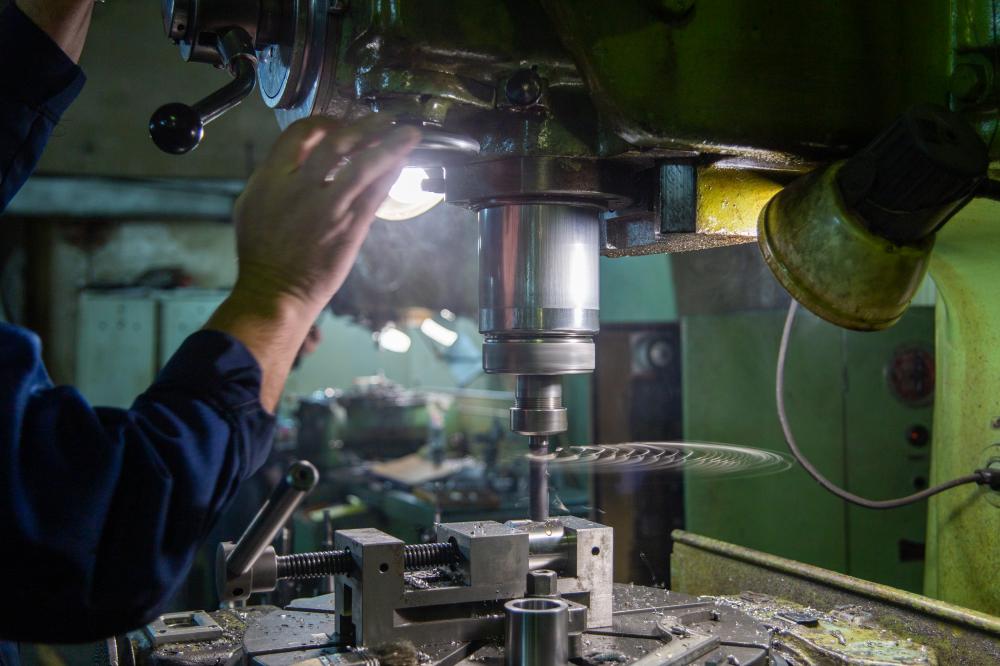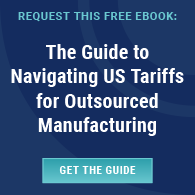
The Role of a Contract Manufacturer
In the intricate web of modern production, the contract manufacturer plays a pivotal role by bringing ideas to life through efficient and high-quality manufacturing processes. Companies often partner with a contract manufacturer to produce goods without having to invest in costly infrastructure. This outsourcing model allows businesses to focus on core competencies, such as design and marketing, while the manufacturing entity handles the production.
Employing a contract manufacturer can result in substantial cost savings due to economies of scale. These manufacturers have expertise in the production of a wide range of products, from simple components to complex machinery, enabling businesses to scale operations and enter markets with agility.
Working with a contract manufacturer also provides access to advanced technologies and methodologies that companies might not possess in-house. This partnership can elevate the quality of products while ensuring compliance with industry standards and regulations, a critical consideration in sectors like pharmaceuticals and electronics.
Navigating Supply Chain Complexities
The global marketplace presents both opportunities and challenges, particularly in the realm of supply chain management. Having collaborated with Altraco for several projects, I’ve witnessed firsthand their adeptness at managing these complexities. Their extensive network of factory relationships across multiple countries offers a strategic advantage, ensuring projects are delivered on time and within budget.
Supply chains can be disrupted by numerous factors, including tariffs. By leveraging their experience, Altraco helps businesses craft strategies to mitigate these disruptions and reduce costs. Their on-ground presence in several countries allows them to swiftly adapt to changes and maintain continuity in the supply chain.
Advantages of Global Manufacturing
Global manufacturing agreements open doors to international markets while offering a balance between cost and quality. Altraco, with its facilities located in various countries, provides an illustrative case of how global reach can be transformed into tangible business benefits. The ability to manufacture in different regions helps mitigate risks associated with geopolitical uncertainties.
Partnering with a contract manufacturer with a global presence allows companies to tap into local expertise and tailor products to meet regional demands. This flexibility can lead to enhanced customer satisfaction and competitive advantages in areas where localized products are preferred.
Cost Efficiency in Partnerships
One of the key reasons companies opt for a contract manufacturer is the potential for significant cost savings. Altraco’s expertise in negotiating favorable terms with their established network of factories is instrumental in achieving this goal. Clients have reported savings of up to 50% on production costs, a testament to the financial benefits of such partnerships.
By avoiding the need to invest in their own production facilities, companies can allocate resources to innovation and market expansion. This is particularly beneficial for startups and small businesses that may lack the capital to invest in manufacturing infrastructure.
With the right contract manufacturer, businesses can achieve a seamless balance between cost and quality, ensuring that the end product meets customer expectations without compromising financial performance.
Strategies for Managing Tariffs
Tariffs can pose significant challenges to international trade, impacting profit margins and supply chain efficiency. Altraco’s seasoned professionals are adept at devising strategies to navigate these complexities, whether it’s through adjusting the supply chain routes or utilizing free trade agreements effectively.
Altraco’s ability to forecast and respond to changes in tariff regulations ensures that their clients remain competitive. This proactive approach, along with their comprehensive understanding of global trade dynamics, sets them apart as leaders in the contract manufacturing space.
Quality Control and Compliance
Ensuring product quality and regulatory compliance is paramount for any business. The contract manufacturer must adhere to stringent quality control processes to meet industry standards. Altraco, for instance, implements rigorous testing and inspection protocols, drawing from their years of experience to deliver products that meet or exceed client expectations.
Their commitment to quality extends beyond the production floor. Altraco actively engages in continuous improvement initiatives, enhancing processes and adopting cutting-edge technologies to maintain high standards. Their clients benefit from this dedication, as it directly translates to increased reliability and reduced risk of product recalls.
Personal Experience in Choosing Partners
Having collaborated with multiple contract manufacturers over the years, choosing the right partner can be daunting yet rewarding. My experience with Altraco underscored the importance of having a transparent and communicative relationship. The trust built through open dialogue and shared objectives is invaluable.
Altraco’s thorough understanding of industry challenges and proactive problem-solving approach made them an ideal partner. Whether it was addressing unforeseen challenges or scaling production to meet increased demand, their responsiveness and reliability stood out.
For companies seeking to outsource manufacturing, prioritizing partners with proven track records and strong industry reputations is key. This not only ensures project success but also fosters long-term collaborative relationships.
Diverse Industries and Adaptability
Contract manufacturers like Altraco cater to a diverse array of industries, from consumer electronics to automotive components. This versatility is a cornerstone of their business model, allowing them to adapt and innovate in response to industry-specific requirements.
By working with different industries, a contract manufacturer accumulates a wealth of knowledge and best practices, which can be cross-applied to foster continuous improvement. This adaptability is crucial in an ever-changing market landscape where customer needs and technological advancements drive constant evolution.
Reliability and Timeliness
The reliability of a contract manufacturer is reflected in their ability to deliver on time. Altraco’s impressive track record of 99.6% on-time deliveries underscores their commitment to timeliness, a critical factor in maintaining competitive advantage and consumer trust.
On-time delivery is not just about logistics but also effective communication and meticulous planning. Altraco excels in these areas by maintaining strong relationships with their factories and having contingency plans in place to address potential disruptions.
For businesses, partnering with a manufacturer known for reliability reduces stress and allows for better planning and resource management, ultimately contributing to a smoother operational workflow.

What is the difference between OEM and contract manufacturer?
The terms OEM (Original Equipment Manufacturer) and contract manufacturer are often used interchangeably, but they refer to slightly different concepts. An OEM refers to a company that produces parts or equipment that may be marketed by another manufacturer, while a contract manufacturer specializes in producing products or components as per another company’s design and specifications. Essentially, OEMs often create original designs, whereas contract manufacturers bring others’ designs to life. For instance, at Altraco, we work as a contract manufacturer, focusing on executing the production process efficiently and cost-effectively based on our clients’ needs. This distinction can be crucial for businesses looking to outsource manufacturing but also maintain control over product development and innovation. Have you ever considered which model might suit your business goals better?
What is a contract manufacturing job?
A contract manufacturing job involves producing goods or components on behalf of another company, based on the purchasing company’s specifications. This can range from assembling electronics to crafting intricate metal parts through processes like casting and molding. At Altraco, for instance, we handle everything from simple assembly tasks to complex production processes, all while ensuring quality and cost efficiency. Our role extends beyond just manufacturing to include supply chain management, compliance with industry standards, and logistics support. In a way, contract manufacturers act as an extension of a business’s manufacturing arm, providing flexibility and scalability. Could this be a way for your business to expand without the capital investment?
Who is the world’s largest contract manufacturer?
Foxconn, also known as Hon Hai Precision Industry Co., Ltd, holds the title of being the world’s largest contract manufacturer. They’re widely recognized for their role in producing electronics for major companies like Apple. However, the largest isn’t always the best fit for every company. While Foxconn handles large volumes and complex products, smaller businesses might benefit from partnering with a company like Altraco, which offers personalized attention and expertise in navigating supply chain and tariff challenges. Have you thought about what size and scope of contract manufacturer could best meet your specific needs?
How much do contract manufacturer California experts make?
The revenue for contract manufacturers can vary significantly based on the size of the firm and the industries they serve. Large firms like Foxconn report billions in revenue, while smaller companies may have revenues in the millions. For a company like Altraco, the value we provide is not just in revenues but in how we help clients achieve cost savings of up to 50% on production, thus enhancing their profitability. The earnings can also depend on expertise, efficiency, and the ability to manage complex supply chains. Have you explored how the right partnership could affect your bottom line favorably?
Why should a business choose a global manufacturing partner?
Partnering with a global manufacturer like Altraco offers businesses access to diverse markets and the ability to balance cost with quality. This global reach can help mitigate geopolitical risks and allows companies to tailor products to meet local demands more effectively. For example, having manufacturing facilities in multiple countries enables swift adaptation to local regulations and market needs, enhancing customer satisfaction. The question isn’t just why choose a global partner, but rather, are you ready to leverage the strategic advantages of global manufacturing for your business growth?
How does a contract manufacturer ensure quality and compliance?
Quality control and compliance are pivotal in contract manufacturing. At Altraco, we implement stringent quality control processes, including meticulous testing and inspections, to ensure that products meet or exceed industry standards. Our extensive experience allows us to adopt cutting-edge technologies and continuous improvement initiatives, reducing risks of product recalls. Compliance is particularly crucial in regulated industries like pharmaceuticals and electronics. How does your current manufacturing partner handle quality and compliance, and is there room for improvement?
What are effective strategies for managing tariffs in contract manufacturing?
Managing tariffs effectively requires a good understanding of global trade dynamics and the ability to adapt quickly. At Altraco, we utilize strategies such as adjusting supply chain routes and leveraging free trade agreements to mitigate tariff impacts. Our proactive approach involves forecasting changes in tariff regulations to help our clients remain competitive. By having an on-ground presence in several countries, we swiftly adapt and maintain continuity. Could your business benefit from a more strategic approach to managing tariffs?

